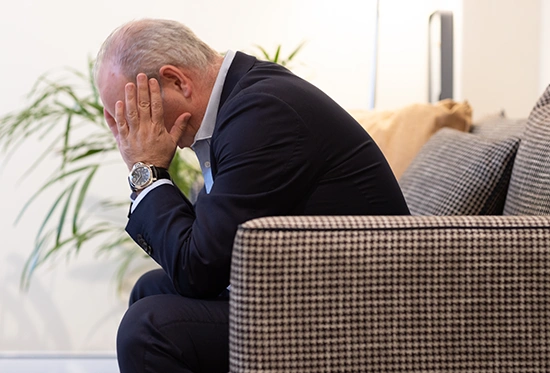In May, UPMC is highlighting its mental health crisis services located at 501 Howard Ave., Building C, Suite 104, in Altoona, Pennsylvania. These services function similarly to an urgent care center for mental health emergencies, offering immediate support rather than the more intensive care provided at the UPMC Altoona Emergency Department across the street.
The Altoona Crisis program operates 24/7, providing phone counseling year-round. Clients can reach out for help by calling 814-889-2141, Option 1. A mobile crisis team is also available around the clock to assist individuals in their homes, on the streets, or in public spaces. For those who prefer in-person assistance, a walk-in center is open Monday to Friday from 8 a.m. to 8 p.m., while a welcome center operates from 9 a.m. to 5 p.m. during the same days.
Trisha Ruggerio, the program manager, states that the welcome center is staffed by a peer specialist who has personal experience with mental health challenges. This setting is designed to offer a supportive environment where individuals can relax or engage in activities like playing cards or watching TV. It also provides opportunities to discuss coping skills or practice mindfulness techniques.
Michael Edelstein, clinical service manager for UPMC Western Behavioral Health Altoona Crisis Services, emphasizes the necessity of distinguishing mental health crises from physical emergencies typically handled by emergency rooms. The center aims to create a safe and welcoming atmosphere for those seeking help for issues such as depression, anxiety, panic attacks, relationship problems, financial stress, and thoughts of self-harm or harm to others, as long as there is no immediate danger.
Edelstein points out that many individuals exhibit behavioral changes that indicate a mental health crisis, such as withdrawing from work, school, or social activities, or increasing substance use. He notes, “Mental health issues appear to be on the rise, particularly in conjunction with the substance abuse crisis.”
The demand for mental health services in the area is high, with a shortage of psychiatrists and therapists contributing to long wait times for treatment. This backlog can exacerbate individuals’ issues, making the crisis center a vital resource for immediate support. According to Edelstein, the center serves as a stopgap, providing quicker access to help compared to emergency rooms.
If a client requires further intervention, the crisis center staff will coordinate with emergency services, similar to how urgent care clinics refer patients to emergency rooms for serious physical conditions. The crisis center is equipped to assist the majority of individuals seeking help, ensuring referrals are made based on the best fit for their needs, considering location, insurance, and personal circumstances.
The Altoona Crisis program exemplifies UPMC’s commitment to addressing mental health challenges in the community by providing accessible and timely services that prioritize individual comfort and support.



